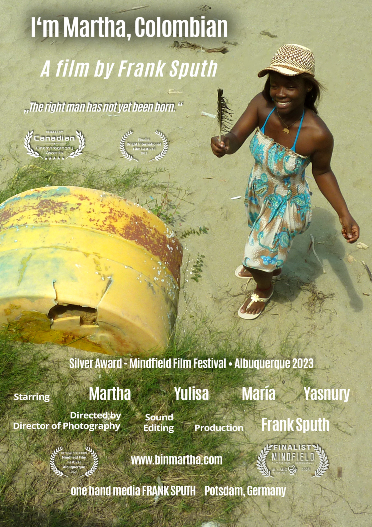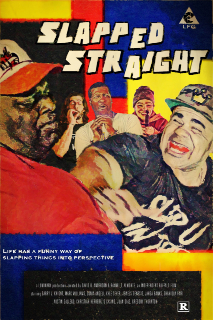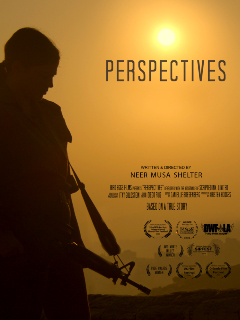‘Elvis’ tackles Teenagers Lost in the Immigration Shuffle: An Interview with Film Director Nick Santana #indiefilm #kickstarter
 Wednesday, December 28, 2011 at 2:42PM
Wednesday, December 28, 2011 at 2:42PM Inspired by the life experiences of a cousin from Mexico, filmmaker Nick Santana is providing a voice for teenagers who are faced with immigration challenges with his short film debut, “Elvis.” The movie is set in Brooklyn, New York and tells the story of a 15 year-old boy named Elvis who suddenly learns that he is undocumented and may be deported. In a recent interview, Santana shares some background information on how the screenplay for “Elvis” came to light while also reminding me why movies centered on real-life circumstances that are rarely seen in film deserves our support.
Madlab Post: How did you get attached to this film?
Nick Santana: I wrote the screenplay. It was an idea that I’ve been playing with for a couple of months. I’ve done other stuff in films – commercials and online content, but mostly for (corporate) brands; I wanted to do something else that was a little bit more personal and I was trying to figure out what that would be and this is the project that I wrote.
What inspired you to want to make "Elvis" during a time when our country's political landscape is battling such a touchy subject?
As I was trying to come up with an idea of what the short film would be, I kept pitching ideas to friends, to my wife and nothing struck a chord -- I didn’t feel passionate about them. I read a couple of articles in the New York Times, on children whose parents are being deported and it sparked a childhood memory of one of my cousins – he and I discovered that his citizenship was not legal, when he was about to graduate from high school.
He was an undocumented citizen, so he couldn’t apply for University -- he could, but he wasn’t eligible for student loans, the Pell grants or any financial aid, at all. I remember him getting discouraged; He wanted to study architecture. So, I drew from that – personal experience and the article that I read. That’s how I came up with the story for “Elvis” and I made it specifically very New York based.
Was the New York setting of “Elvis” chosen based on this city’s high immigrant population?
“Elvis” is set in New York because of two reasons – I’m here, so it’s easier for me because it costs less money to make the film -- I don’t have to fly out to Los Angeles. Also, New York has always been an entryway, a hub of immigration and diversity. We have the Statue of Liberty – that’s one big example, one symbol of immigration.
You meet a plethora of immigrants from all over (the world) in New York – West African, Middle Eastern and people from the South Pacific. In California, the biggest complaint is that there are people from Mexico and Central America there, but New York has people from everywhere. Your cab drivers, the street vendors selling food – you’re exposed to it; that’s what makes this city so amazing – you’re constantly exposed to change and to diversity.
In what ways can "Elvis" help teenagers become more understanding of either their peers or their own circumstances?
In this particular story, Elvis comes to a realization of his citizenship status and much like a lot of teenagers, you go through life not thinking that your life can change – you’re immortal when you’re young; The short is less than 10 minutes long but in the beginning we see Elvis being a normal teenager, wilding out and hanging out with his friends, trying to pick up on teenage girls from the city and then his life is turned upside down. He then almost steps up and becomes a man.
What I hope to achieve by telling the story of Elvis is that this is a serious problem – a lot of children come to this country, not on their own choice, they’re brought here by their parents from many different circumstances – escaping poverty or political persecution, etc. but all of a sudden, what do you do when you grow up and you honestly think that you’re American and you don’t know anything else?
I was recently talking to a neighbor who told me that his cousin, who is from Haiti, never knew that he was undocumented. When neighbor’s cousin got into trouble, was picked up for a minor infraction and sent to a detention center. While in detention, he got into a fight and they ended up not only keeping him there longer but they also deported him. They sent him back to Haiti. His entire family is in New York City! He doesn’t know anyone in Haiti and he doesn’t speak the language, so you know, it’s like these cases that I’m starting to realize that they’re not uncommon. So, that’s the story of Elvis.
"At a time when adolescent passage into adulthood is marked by achieving certain milestones, the Elvises of this country have to adapt to living in the shadows." - Nick Santana on 'Elvis'
Stay tuned for more on Nick Santana’s Short Film “Elvis,” tomorrow. In the meantime, support this film by donating $5 to the “Elvis” Kickstarter campaign.
Contributions to this project will help make the production possible in areas such as sound mix, transportation costs, editing and lighting. If you don’t have $5, there is good news – you CAN still donate even only $1 to help get this film in the can!
Technorati Tags: elvis+kickstarter+project, elvis+short+film, elvis+kickstarter+film, elvis+nick+santana, nick+santana+film, elvis+immigration+film, elvis+short+film, short+film+new+york, new+york+film, independent+film+new+york+city, short+film+elvis, nick+santana+interview, elvis+interview, elvis+movie, immigration+new+york, movies+about+immigration, film+on+immigration, short+film+about+immigration






























































